Two time Irish Journalist of the Year Conor O’Clery was born in Belfast during the 1940’s and spent 33 years as a reporter for The Irish Times, Ireland’s most distinguished newspaper. Mr. O’Clery served as The Irish Times first Bureau Chief in Moscow, and subsequently opened staff offices in Washington, Beijing and New York City. He also served as a foreign correspondent in London for 5 years.
Two-Time Irish Journalist of the Year
Conor O’Clery was first named Ireland’s journalist of the year for his coverage of the Soviet Union in 1987. He won the award again for his firsthand coverage of 9/11, which he agonizingly witnessed and reported on from his Battery Park office, 3 buildings away from the Twin Towers, powerless to stop them from tragically crumbling before his eyes. That day, and in the days that followed, Ireland was mesmerized by what Mr. O’Clery had to say, and he felt a sense of duty to report the dramatic events to his country.
An Interesting Youth
Conor had a unique brush with history at the age of 3 as “watching American soldiers rehearsing for the 1944 Normandy landings on the beach in Newcastle, County Down” was his favorite childhood memory. At the end of high school he started his own local publication called the ‘Hilltop Herald,’ which he had to quickly drop before finding his calling again some years down the line with The Irish Times (take note aspiring writers).
Witness to Major Historical Events
With The Irish Times, when there was a major international event, Conor was there. Along with New York Times foreign correspondent Bill Borders, they were the first international journalists to cross from Pakistan into Afghanistan in January 1980 after the Soviet invasion of Afghanistan. Conor was back in Afghanistan in 1988, as the United States government had assisted Islamic fundamentalists in kicking the Soviet regime out of the country.
Conor was there when the Shah of Iran fell in 1980. When Saddam Hussein later invaded Iran, Conor was in Baghdad and traveled to the border of Iran with Iraqi military personnel, where he was nearly killed in an aerial bombing (one of several close brushes with death). When Pope John Paul II made a historic first ever papal visit to Ireland, flying from Rome to Dublin in 1979, Conor was on the airplane. He even witnessed the burning of Mahatma Ghandi’s house museum in South Africa in 1985 during major apartheid riots that pitted Blacks against Indians during the struggle for equal rights.
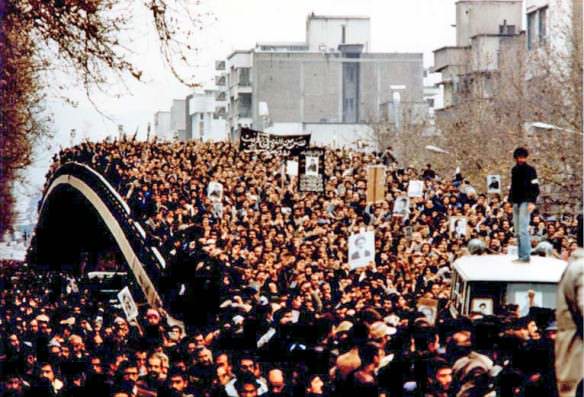
First Irish Reporter to Interview President Bill Clinton
Conor was the first Irish reporter to have a one-on-one interview with President Clinton while in office, which he did 3 times. He’s written 8 books, including the exclusive authorized biography of perhaps the greatest philanthropic story of the last century, in ‘The Billionaire Who Wasn’t: How Chuck Feeney Secretly Made and Gave Away a Fortune.’ All this, and he even has a Wanderlust Marriage tale of his own, as he met his Armenian wife Zhanna while residing in Moscow during the late 1980’s.
Dublin Cafe Interview
Conor’s memoir ‘May You Live in Interesting Times’ is an excellent fast paced read, shifting back and forth between tragedy and humor. It was an absolute privilege to sit down with Conor O’Clery over coffee for an interview for this website. He even has his own wanderlust marriage story to tell.
Conor O’Clery – Moscow, because there was so much happening while I was there and the end of the Cold War was a golden time for journalism in Russia. This was a period where journalism was free from government intervention, free from business interests and free from the pressure of editors and readers.
Alex Kallimanis- What were your favorite and least favorite things about life in the Soviet Union, which you covered as it transitioned into Russia following the breakup of the Union?
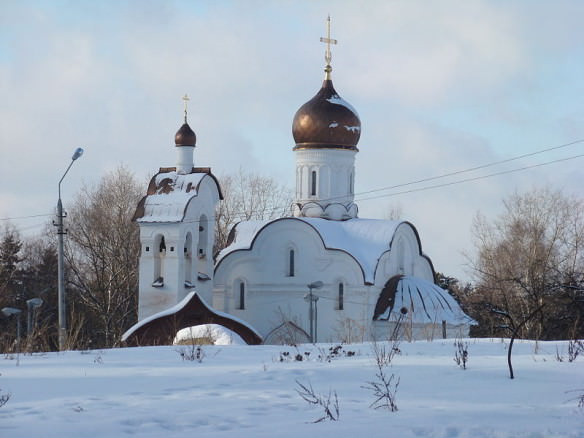
Conor O’Clery – Communism brought literacy to everyone. Afghanistan has mass illiteracy, but in neighboring Tajikistan, everyone can read and write. And I loved the climate. It was easy to ski where you wanted. When we lived in Washington we went out to the countryside to ski and saw no trespassing signs everywhere. In the USA you have to go to specific places to ski….The level of culture and education was very high in Soviet Russia. I fell in love with the town of Peredelkino. It’s where Boris Pasternak wrote Dr. Zhivago and where I proposed to Zhanna.
My least favorite thing was that bureaucrats in Soviet Russia were very rude. They were very contemptuous of the people. My father-in-law spent 4 years in jail for trying to sell his car at a profit. I also didn’t like the system of apartheid in Moscow. You couldn’t change the rubble on the international market because it was viewed as being worthless. A few Western stores accepted hard currency so we could buy things like Swiss cheese, but the locals could not.”
Alex Kallimanis- Of the two American cities you lived in for 5 years a piece, Washington and New York, which did you prefer?
Conor O’Clery – Washington. I liked the lifestyle of suburban Washington where dinner parties were the preferred method of getting together. New York was totally different. You met people in restaurants so there wasn’t the same level of intimacy. But people also lived greater distances from each other in New York. In Washington everyone had a car and lived in the northwest suburbs….Washington was more laid back. Kennedy didn’t like Washington though, he once said that it ‘had the elegance of a northern city with the efficiency of a southern town.’ When I once quoted this in a story, my editor thought I quoted it backwards.
Alex Kallimanis- Tell us about meeting your Armenian wife Zhanna in Moscow?
Conor O’Clery – I needed to learn Russian to do interviews on the streets and a Scottish colleague introduced us in 1987. Zhanna was doing her PhD at the time…After she finished she moved to Siberia where her family was living. I wrote her letters in Russian begging her to marry me. She eventually came back to Moscow and we got married in 1989.
Stay tuned for the second installment of our interview with legendary foreign correspondent Conor O’Clery to come in the near future. In the meantime, check out some of his award winning books for sale on Amazon. And if anyone has their own question for Conor, please leave it in the comments section and we’ll see if we can have it added to the second segment.
Update: We thank our readers for the great questions, which Conor O’Clery has answered for the final segment! To read the rest of the interview click here.

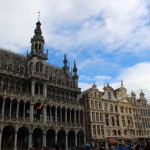
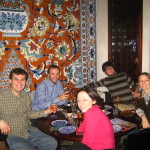


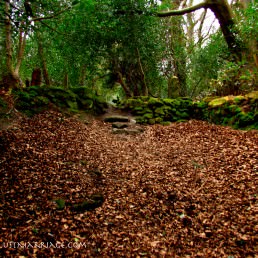 Hiking the Wicklow Mountains Provides a Compelling View of Dublin
Hiking the Wicklow Mountains Provides a Compelling View of Dublin 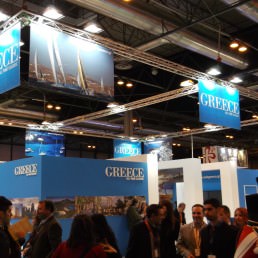 What to Expect at a Travel Trade Fair
What to Expect at a Travel Trade Fair
A wonderful interview with a very interesting man. I look forward to the next edition of the story. I love stories of people who have travelled and experienced different cultures and lifestyles, it truly adds to the mosaicof life on our wonderful planet.
Thank you for the compliment on our end and I’ll be sure to pass the message along! On top of his illustrious career, Conor is a good guy who cares about people. I’ve met him twice over coffee and both times he has arrived a little early- he doesn’t believe in keeping people waiting. He told me billionaire philanthropist Chuck Feeney was the same when they had lunch meetings- each just kept arriving earlier as time went on.
I was waiting for that last question. Glad you asked him: so romantic!
I was wondering – as always – whether Mr. O’Clery and his wife had to deal with cultural differences when they just met (or maybe even now). I would especially be interested to hear some examples and their solutions. When it comes to Mr. O’Clery’s career, I would like to know how his Irish background helps him (or maybe hurts him) while living and working abroad. Also, I was wondering how to get as active abroad as Mr. O’Clery is; any tips for the people out there who have tons of ideas, but who feel restless and stifled at the same time?
Thanks so much for commenting and for some great questions! We’ll pass them along to Conor and hope to get them answered for the second segment to come down the line 🙂
From our end (Alex and Bell), being an expat in another country can both help and hurt your career, and it certainly depends where you are and what circumstances you’re in. Life has its ebbs and flows so you just have to try and surf the waves and accept the good and bad that comes (and there’s plenty of both). From a career perspective, you just have to put yourself out there and be prepared to make some mistakes, move on from them, and strive to do better next time.
We’re an Australian and Greek American couple ourselves so we certainly know about cultural differences. There have definitely been times for Bell and I where cultural differences have caused difficulties, but you have to accept them, grow together and move past them. We think evolving together is key.
Thanks again for the great questions to pass along! 🙂
Great article, Alex! Wow, what an interesting person…I’d love to have a chance to just sit down and chat with someone like that. Well done!
Thank you very much, Rick! You’ve done a phenomenal job highlighting many cultural insights of Italy and comparing many aspects with the USA. Now that Italy Magazine named your blog “Best Living in Italy Blog” you’re certain to be open to these types of opportunities. Perhaps look to contact some Italian foreign correspondants who can provide an Italian outlook on this type of coverage? And big congratulations on your award!
An excellent idea! In fact, I’m already planning a “blog tour-de-force” through Italy this summer, and it would be great to line up a few big name interviews along the way. Thanks for the idea!
I’ve seen the itinerary for the tour to Sicily that you’re organizing! It sounds like it will be phenomenal and what you’re doing is a fantastic idea. We’ve never been to Sicily and I’ve always wanted to go- we’re thinking maybe to go this April when it’s a little cheaper. I want to try the pasta dish with fresh pistachios and sardines in it, among many eats. Slainte and thanks as well, Rick!
One question I would love to know the answer to is given your log career in journalism, what do you consider the greatest threat today to the mainstream free press in western countries? What can we do (if anything) to protect it? What is the most difficult lesson you have learned as you have covered the events of the last several decades?
Great questions John! Thank you so much for asking them. They’ll be passed on to Conor and I greatly look forward to hearing his response when he gets a chance. Cheers!
Hi Alex, nice piece. I do have a question for Mr. O’Clery, actually more than one (if that’s ok).
The first is about the situation in Juarez, Mexico. It’s been called by some as the most dangerous place on earth and that journalists have been targeted by the local drug cartel. Therefore the coverage there is minimal at best. What’s the best solution in getting investigative reporting in this area again?
The second question, relates a bit more to the state of journalism today. It used to be that newspapers were (and probably still are to a degree) a main source of journalistic reporting. However, that is definitely on the downtrend and you’re seeing more and more very interesting online sources of news that are picking up the slack.
For example, one of my favorite is Vice.com. It’s very different from any other source, but it seems like they’re breaking great stories that are relevant. My question is, do you see more serious journalists moving away from traditional media to these other venues?
One of my favorite journalists is Matt Taibbi for the Rolling Stones. Who is someone who is currently putting stories out there that you respect the most?
Thanks for your time and I look forward to hearing your responses.
Hey Ianca, thank you very much! Awesome questions!
I find the situation in Mexico to be particularly compelling and complex. Adventure traveler and blogger, Harry Devert, recently went missing in Michoacan, an area that’s been severely affected by the drug cartels- to the point where vigilantes have taken up arms to fight them (because as you know the cartels pay off local police and government officials who are underpaid and whose families can be killed if they don’t take the bribes). http://edition.cnn.com/2014/02/08/world/americas/missing-american-mexico/
I love this question on getting better coverage in the border town of Juarez- I actually visited that town when I was a kid, some 25 years ago. My father took us on the road for work (he was a roofing salesman at the time and worked for a company called Texas Refinery Corporation and they were holding a convention in Fort Worth). After the convention we crossed over from Texas into Juarez for the day. We strolled around, ate and my Dad even gave us a bit of Corona 😉
I’ll have to check out Vice.com and Matt Taibbi’s work as I’m not familiar with them. I’d actually love to self fund some war/civil disturbance correspondence for this blog- like being in Ukraine right now. But Bell isn’t comfortable with me doing that.
Since there are great questions filtering in, I’ll keep this thread open 2 more weeks before passing on the questions to Conor. Thanks again for helping to create a very interesting discussion!
Questions for Conor O’Clery for this interview are now closed. The rest of the interview, with Conor’s response to your questions can be read here https://wanderlustmarriage.com/award-winning-foreign-correspondent-conor-oclery/ Thanks so much everyone!